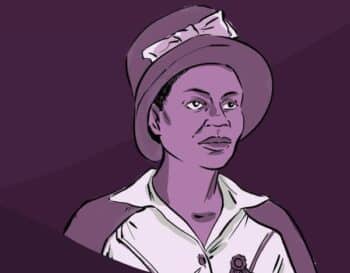Dear friends,
Greetings from the desk of Tricontinental: Institute for Social Research.

Alexander Skunder Boghossian (Ethiopia), The End of the Beginning, 1972—1973.
What constitutes a crisis worthy of global attention? When a regional bank in the United States falls victim to the inversion of the yield curve (i.e., when short-term bond interest rates become higher than long-term rates), the Earth nearly stops spinning. The collapse of Silicon Valley Bank (SVB)—one of the most important financiers of technology start-ups in the United States—on 10 March presaged wider chaos in the Western financial world. In the days after the SVB debacle, Signature Bank, one of the few banks to accept cryptocurrency deposits, faced bankruptcy, and then Credit Suisse, an established European bank set up in 1856, fell due its longstanding poor management of risk (on 19 March, UBS agreed to buy Credit Suisse in an emergency deal seeking to halt the crisis). Governments held emergency Zoom conferences, financial titans called the heads of central banks and of states, and newspapers warned of system failure if safety nets were not quickly sown underneath the entire financial architecture. Within hours, Western governments and central banks secured billions of dollars to bail out the financial system. This crisis could not be allowed to escalate.
Other serious developments in the world might be called a crisis, but they do not elicit the kind of urgent response undertaken by Western governments to shore up their banking system. Three years ago, Oxfam released a report that found that the ‘world’s 22 richest men have more wealth than all the women in Africa’. That fact, which is more shocking than the failure of a bank, has moved no agenda despite the evidence that this disparity is caused largely by the predatory, deregulated lending practices of the Western banking system (as we will show in our April dossier, Life or Debt: The Stranglehold of Neocolonialism and Africa’s Search for Alternatives).

Nike Davies-Okundaye (Nigeria), Beauty Is Everywhere, 2013.
Silence greeted the publication of a key report this past January on the regression of the United Nations Sustainable Development Goals (SDGs) being met on the African continent. The 2022 Africa Sustainable Development Report, produced by the African Union, the UN Economic Commission for Africa, the African Development Bank, and the UN Development Programme, showed that, because of the failure to finance development, African countries will not come anywhere near abolishing extreme poverty. Before the COVID-19 pandemic, 445 million people on the continent—34% of the population—lived in extreme poverty, with 30 million more people being added to that number in 2020. The report estimates that, by 2030, the number of people in extreme poverty on the continent will reach 492 million. Not one alarm bell was rung for this ongoing disaster, much less the rapid apparition of billions of dollars to bail out the African people.
The International Monetary Fund (IMF) found that women in Africa are more likely to be struck hard by the pandemic. The data, the IMF reported, is camouflaged by the prevalence of self-employment amongst women, whose economic difficulties do not always appear in national statistics. Across Africa, hundreds of thousands of people have taken to the streets over the past year to question their governments about the cost-of-living crisis, which has evaporated most people’s incomes. As incomes fall, and as social services collapse, women take up more and more of their households’ workload—tending to children, to elders, to those who are sick and hungry, and so on. The African Feminist Post-COVID-19 Economic Recovery Statement, written by a pan-African feminist platform, offered the following assessment of the situation:
the absence of social safety nets needed by women due to their greater fiscal precarity in the face of economic shocks has exposed the failures of a development trajectory currently prioritising productivity for growth over the wellbeing of African people. Indeed, COVID-19 has made evident what feminists have long emphasised: that the profits made in economies and markets are subsidised by women’s unpaid care and domestic work—an essential service that even the current pandemic has failed to acknowledge and address in policy.

Josie Mpama
On 8 March, International Working Women’s Day, protests across Africa focused attention on the general decline in living standards and on the specific impact this has had on women’s lives. That evocative statement from Oxfam—the world’s 22 richest men have more wealth than all the women in Africa—and the realisation that these women’s living conditions appear to be deteriorating have not provoked a crisis response in the world. There have been no urgent phone calls between the world’s capitals, no emergency Zoom meetings between central banks, no concern for people who are slipping deeper and deeper into poverty as their countries forge a path of austerity in light of a more and more permanent debt crisis. Most of the protests on 8 March focused their attention on the inflation of food and fuel prices and on the precarious conditions that this is creating for women. From the Landless Workers’ Movement’s public action against slave-like labour practices in Brazil to the demonstration against gender-based violence by the National Networks of Farmers’ Groups in Tanzania, women organised by rural and urban trade unions, by political parties, and by a range of social movements took to the streets to say, with Josie Mpama, ‘make way for women who will lead’.
At Tricontinental: Institute for Social Research, we have been tracking how the pandemic has hardened the structures of neocolonialism and patriarchy, culminating in CoronaShock and Patriarchy (November 2020), which also presented a list of the people’s feminist demands to confront the global health, political, social, and economic crisis. Earlier that year, in March 2020, we released the first study in our feminisms series, Women of Struggle, Women in Struggle, in which we pointed out how economic contraction and austerity cause more women to be unemployed, put more pressure on women to care for their families and communities, and lead to increased femicide. In response to these horrendous conditions, we also wrote about the rise of protests by women across the world. At that time, we decided that one of our contributions to these struggles would be to excavate the histories of women within our movements who have been largely forgotten. Over the past three years, we have published short biographies of three women—Kanak Mukherjee (India, 1921—2005), Nela Martínez Espinosa (Ecuador, 1912—2004), and now Josie Mpama (South Africa, 1903-1979). Each year, we will publish a biography of a woman who, like Kanak, Nela, and Josie, fought for a socialism that would transcend patriarchy and class exploitation.

Protests against lodger’s permits in Potchefstroom in the late 1920s often confronted authorities at the town hall, pictured in the distance. These were formative political experiences for Josie.
(Reference photograph by Gawie van der Walt, sourced from Lennie Gouws.)
In the early 1920s, Josie Mpama, born into South Africa’s Black working class, joined the informal workforce, washing clothes, cleaning homes, and cooking. When the racist regime tried to enforce policies and laws to restrict the movement of Africans, she entered the world of politics and fought the oppression that came with decrees such as the lodger’s permits in Potchefstroom (in the country’s northwest). The Communist Party of South Africa (CPSA), established in 1921, provided shape to the myriad protests against segregationist laws, teaching the workers to use their ‘labour and the power to organise and withhold it’, as their flyers declared. ‘These are your weapons; learn to use them, thereby bringing the tyrant to his knees’.
In 1928, Josie joined the CPSA, finding support both for her organising work and for her desire for political education. In the 1930s, she moved to Johannesburg and opened a night school for ideological training as well as for basic mathematics and English. Later, Josie became one of the first Black working-class women to enter the senior leadership of the CPSA and eventually travelled to Moscow using the pseudonym Red Scarf to attend the Communist University of the Toilers of the East. Under Josie’s leadership as the head of the party’s women’s department, more and more women joined the CPSA, largely because it took up issues that spoke to them and encouraged women to struggle alongside men and fight for more radical conceptions of gender roles.
So much of this history is forgotten. In contemporary South Africa, there is a focus on the importance of the Freedom Charter (adopted on 26 June 1955). But there is less acknowledgement that the year before, the Federation of South African Women (FEDSAW) passed a Women’s Charter (April 1954), which—as we say in the study—‘would eventually become the basis for certain constitutional rights in post-apartheid South Africa’. The Women’s Charter was passed by 146 delegates who represented 230,000 women. One of those delegates was Josie, who attended the conference on behalf of the Transvaal All-Women’s Union and became the president of FEDSAW’s Transvaal branch. The Women’s Charter called for equal pay for equal work (yet to be attained today) and for the right of women to form trade unions. Josie’s leadership in FEDSAW caught the eye of the South African apartheid regime, which banned her from politics in 1955. ‘Josie or no Josie’, she wrote to her FEDSAW comrades, ‘the struggle will go on and ours will be the day of victory’.
On 9 August 1956, 20,000 women marched to South Africa’s capital of Pretoria and demanded the abolition of the apartheid pass laws. That date—9 August—is now celebrated as Women’s Day in South Africa. As the women marched, they chanted: wathint’ abafazi, wathint’ imbokodo, uzokufa (‘you strike the women, you strike the rock, you will be crushed’).
Warmly,
Vijay

